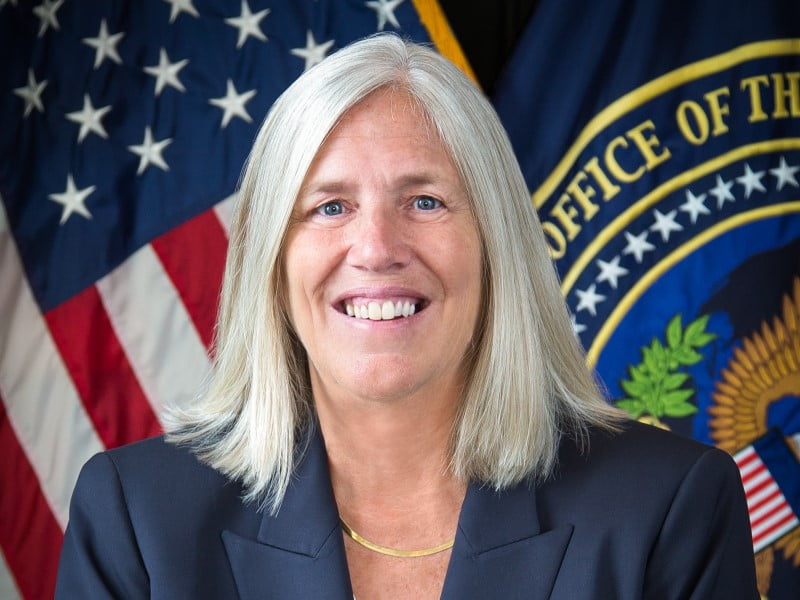A framework for technology sharing under pillar II of the trilateral AUKUS security pact must be established to ensure the arrangement is transformative, according to veteran leader of the United States intelligence community, Susan Gordon.
Ms Gordon, speaking on the United States Studies Centre’s latest ‘Technology and Security’ podcast, said its not good enough to “develop all the piece parts and somehow they’re going to magically come together”.
Across her extensive intelligence career, Ms Gordon was previously the principal deputy director of National Intelligence, National Geospatial Intelligence Agency deputy director, and spent 29 years at the CIA, where she led the establishment of the CIA’s venture capital firm In-Q-Tel.
Among her several current roles, she is an independent director of government focused tech consultants CACI and Avantus Federal, as well as a consultant to Microsoft and other tech companies.

Under AUKUS pillar II, the partner countries have committed to collaborating on the development of eight advanced capabilities, including quantum, advanced cyber, and artificial intelligence and autonomy.
Ms Gordon emphasised the importance of setting a “quest of someplace you want to go”, such as the US mission to fly and return a moon mission in the 1960s, which can drive innovative public-private partnerships.
“You can’t just independently develop those [critical] technologies and think at some moment they’re going to come together in order to deliver you a capability that is going to be transformative, that requires a framework,” Ms Gordon said.
“It’s really important that each country develops something so that it fits within their ethos and structure. But at some point, you’re going to have to come up with a common framework that allows sharing, especially in a world where it’s not just the governments that are going to be in control of the technologies that you need.
“It’s private companies that need to be able to work together. But how are they going to do that?”
Ms Gordon also said it was important that complete technology decoupling between the US and China did not take place, because global technology cooperation and competition is needed to ensure there remains a vibrant technology community in the US.
“We have an incredibly vibrant technology community. It’s probably why I argue for non-decoupling, because I think now it requires global participation to have this vibrance. That community needs to have a place so that it can just freely and openly compete and do things,” she said.
However, Ms Gordon noted that this should not preclude additional government investment in research and development, particularly “in the longer-term issues”. She also thinks there is less of an ‘innovation’ problem, and more of an ‘innovation-use’ problem, whereby the US government isn’t sure how to adopt new technologies.
“Still when [companies] offer technologies…[they say] here’s the technology as somehow magically it’s going to get into use, and the companies aren’t thinking about how it gets into use they’re just thinking about how wonderful their technology is,” Ms Gordon said.
While the potential of new technologies is acknowledged by the US government, she notes that it often thinks “’but I don’t know how to bring that in because it doesn’t fit in the systems I have’”.
On the issue of regulating emerging technologies, such as artificial intelligence, Ms Gordon noted that some should be put in place, but that “we’re going to need the private sector to exhibit some responsibility and recognise that not everything they can do, should they do”.
What makes technology hard to regulate in the US as freedom of action and freedom of speech are culturally embedded, she noted. However, she believes it must be overseen by government.
“I don’t know how you can get it out of us, even as we have seen the deleterious consequence of misuse of that information, whether purposeful or not,” she said.







